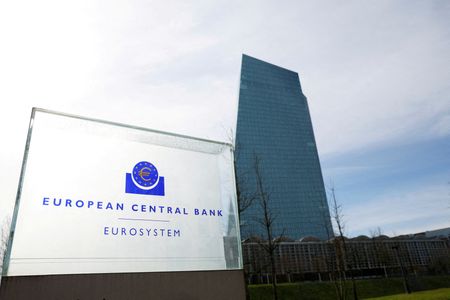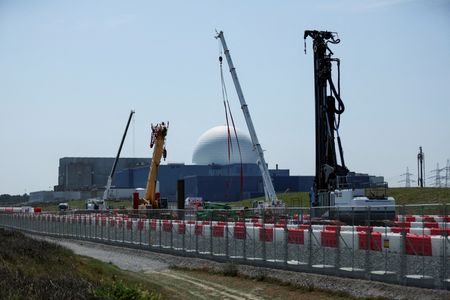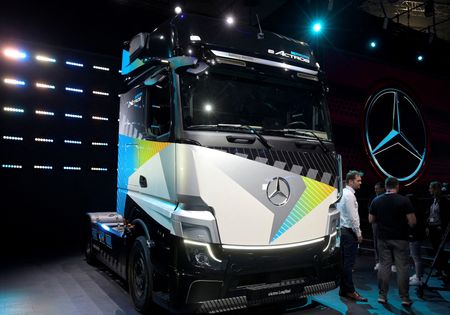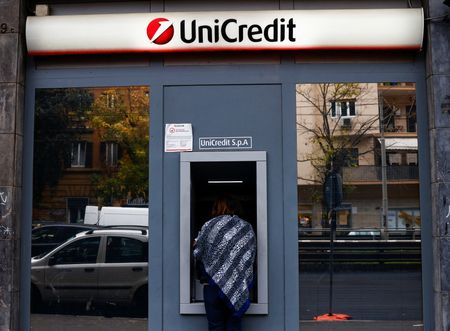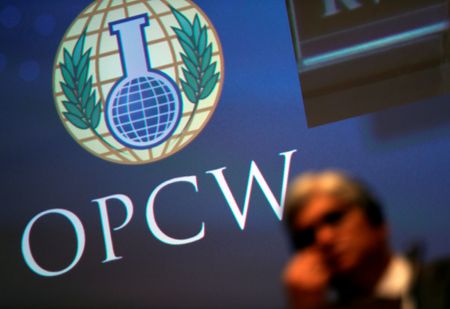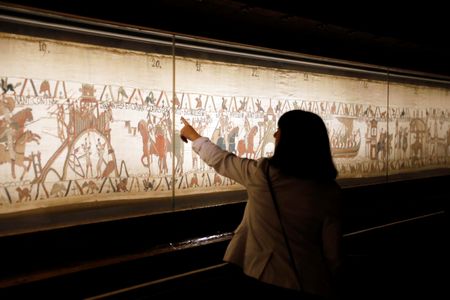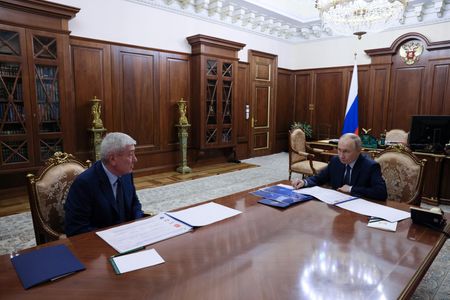FRANKFURT (Reuters) -The European Union is increasingly trading with autocratic regimes, funding their often expansionary strategy and potentially aiding an existential challenge to the bloc itself, a European Central Bank blog post said on Tuesday.
The EU has long prided itself on running a values-based economic policy, with trade relations taking into consideration factors such as social justice, human rights, labour rules, and environmental standards.
But reality is quite different and trade with autocratic regimes has steadily risen from 1999 until the bloc imposed widespread sanctions on Russia after its invasion of Ukraine, the blog post authored by ECB economists Claudia Marchini and Alexander Popov argued.
“Our findings show that, despite its pledges, the EU is indeed increasingly trading with countries run by autocrats and dictators,” the blog, which does not reflect the ECB’s views, said. “We see an interruption to this trend only recently.”
The shift comes as the EU has reallocated imports in favour of less democratic countries and because the quality of democratic governance has declined among existing trading partners.
“‘Trading with dictators’ amounts to generating profits for regimes that often have an explicit expansionary and militaristic agenda,” the blog said. “Ultimately, this can potentially become an existential challenge to the EU.”
The article, however, dismisses the argument that increased trade with China is the culprit, claiming that a similar trend can be observed even if China is excluded.
It also disputes that democracy was itself on the decline, arguing that the median country outside the bloc has actually become more democratic.
On top of the reputational and existential threats, the trend is also concerning since many of the key resources needed for the bloc’s green transition are found in countries run by autocrats, the blog added.
“Our findings suggest a trade-off associated with the green transition,” the blog said. “Current low-carbon technologies rely on a range of rare earth materials that are typically found in countries with autocratic regimes.”
(Reporting By Balazs Koranyi; Editing by Christian Schmollinger)

